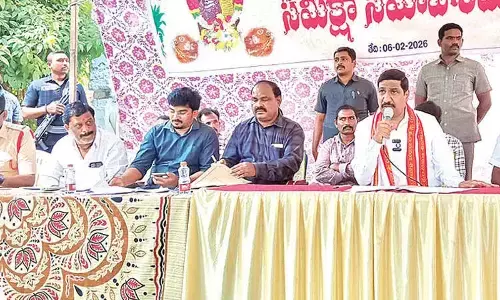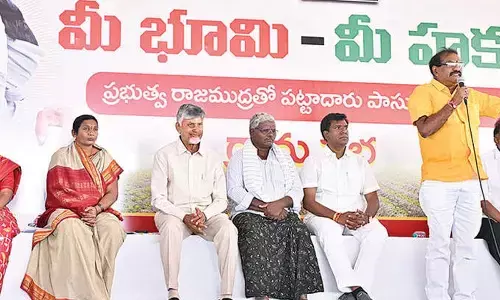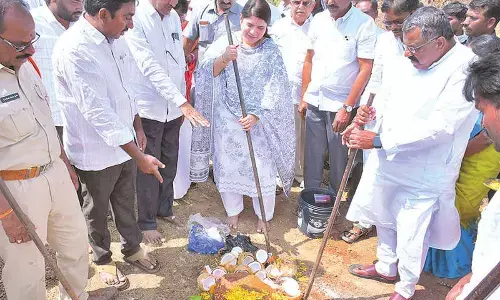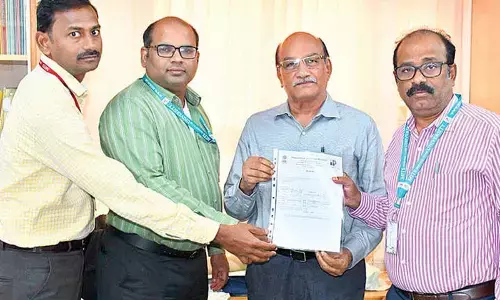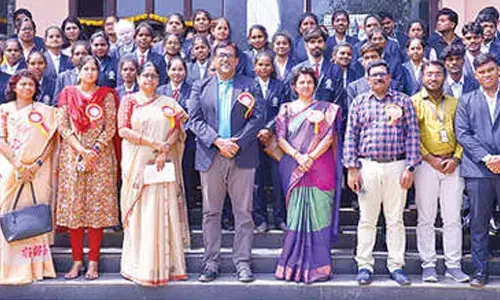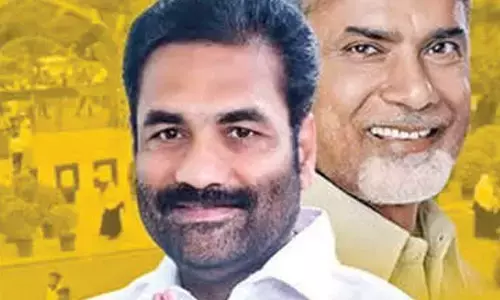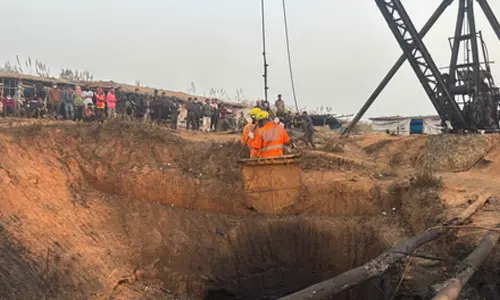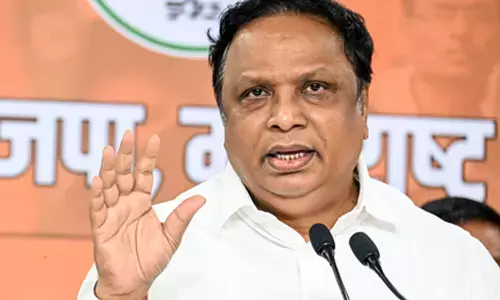No need to teach about riots, demolition in schools: NCERT
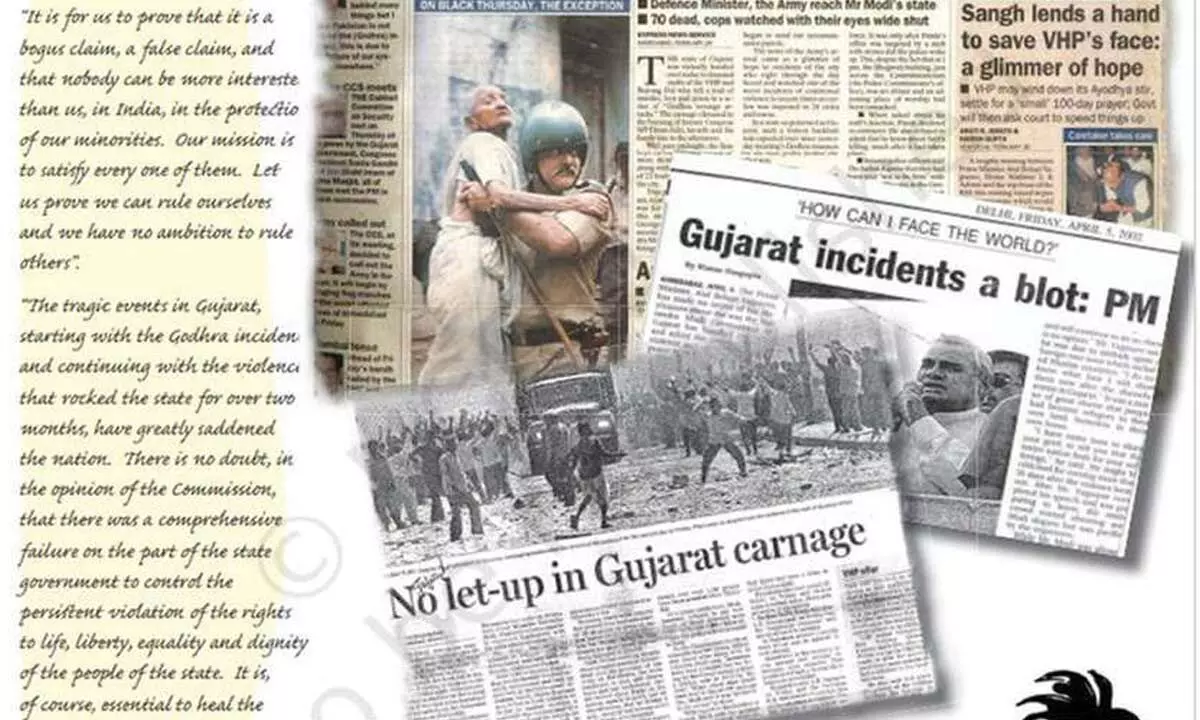
Asked about references to Gujarat riots of Babri masjid demolition being tweaked in NCERT textbooks, Saklani says “We want to create positive citizens, not violent and depressed individuals”
New Delhi: Rejecting accusations of saffronisation of school curriculum, NCERT’s director has said that references to Gujarat riots and Babri masjid demolition were modified in school textbooks because teaching about riots “can create violent and depressed citizens.”
In an interaction with PTI editors at the agency’s headquarters here on Saturday, National Council of Educational Research and Training (NCERT) director Dinesh Prasad Saklani said the tweaks in textbooks are part of annual revision and should not be a subject of hue and cry.
Asked about references to Gujarat riots of Babri masjid demolition being tweaked in NCERT textbooks, Saklani said, “Why should we teach about riots in school textbooks? We want to create positive citizens, not violent and depressed individuals”.
“Should we teach our students in a manner that they become offensive, create hatred in society or become victims of hatred? Is that education’s purpose? Should we teach about riots to such young children ... when they grow up, they can learn about it but why school textbooks. Let them understand what happened and why it happened when they grow up. The hue and cry about the changes is irrelevant,” he said.
The comments by Saklani come at a time when new textbooks have hit the market with several deletions and changes. The revised Class 12 political science textbook, does not mention the Babri masjid, but refers to it as a “three-domed structure”. It has pruned the Ayodhya section from four to two pages and deleted details from the earlier version. It instead focuses on the Supreme Court judgement that paved the way for the construction of a Ram temple at the site where the disputed structure once stood before it was torn down by Hindu activists in December 1992.
The Supreme Court verdict was widely accepted in the country. The consecration of the Ram idol in the temple was performed on January 22 this year by the prime minister. “We want to create positive citizens and that’s what is the purpose of our textbooks. We cannot have everything in them. The purpose of our education is not to create violent citizens ... depressed citizens. Hatred and violence are not subjects of teaching, they should not be focus of our textbooks,” added Saklani. He hinted that the same hue and cry is not made about 1984 riots not being in textbooks. The latest deletions in the textbooks include: BJP’s ‘rath yatra’ from Somnath in Gujarat to Ayodhya; the role of kar sevaks; communal violence in the wake of the demolition of the Babri masjid; President’s rule in BJP-ruled states; and the BJP’s expression of “regret over the happenings at Ayodhya”.
“If the Supreme Court has given a verdict in favour of Ram temple, Babri masjid or Ram janmabhoomi, should it not be included in our textbooks, what is the problem in that? We have included the new updates. If we have constructed a new Parliament, should our students not know about it. It is our duty to include the ancient developments and recent developments,” he said. Asked about allegations of saffronisation of curriculum and ultimately textbooks, Saklani said, “If something has become irrelevant ... it will have to be changed. Why shouldn’t it be changed. I don’t see any saffronisation here. We teach history so students know about facts, not for making it a battleground”. “If we are talking about the Indian Knowledge System, how can it be saffronisation? If we are talking about the iron pillar in Mehrauli and saying Indians were way ahead of any metallurgical scientist, are we saying wrong? How can it be saffronisation?” Saklani, 61, who was head of the ancient history department at the HNB Garhwal University before taking charge as NCERT director in 2022, has faced criticism over the changes in textbooks, especially pertaining to historical facts. “What is wrong about changes in textbooks? Updating textbooks is a global practice, it is in the interest of education. Revising textbooks is an annual exercise. Whatever is changed is decided by subject and pedagogy experts. I do not dictate or interfere in the process ... there is no imposition from top.
“There are no attempts to saffronise curriculum, everything is based on facts and evidence,” he said. The NCERT is revising the curriculum of the school textbooks in line with the National Education Policy (NEP) 2020. From the assertion that recent studies of ancient DNA obtained from archaeological sources at Rakhigarhi, an Indus Valley site in Haryana, rule out Aryan immigration to a call for more research into whether the Harappans and the Vedic people were the same, several crucial topics have either been dropped or tweaked in textbooks.
A two-page table detailing achievements of Mughal emperors such as Humayun, Shah Jahan, Akbar, Jahangir and Aurangzeb have also been removed. This is the fourth round of revision and updating of NCERT textbooks since 2014. Referring to the changes to the section on Ayodhya, the NCERT had said in April -- “Content is updated as per latest development in politics.








